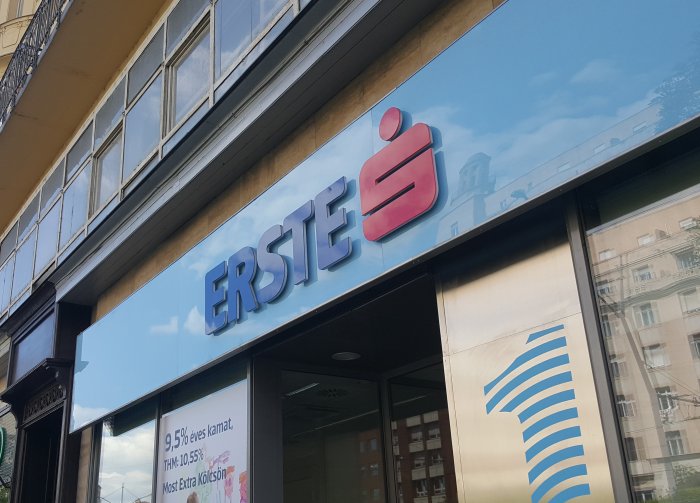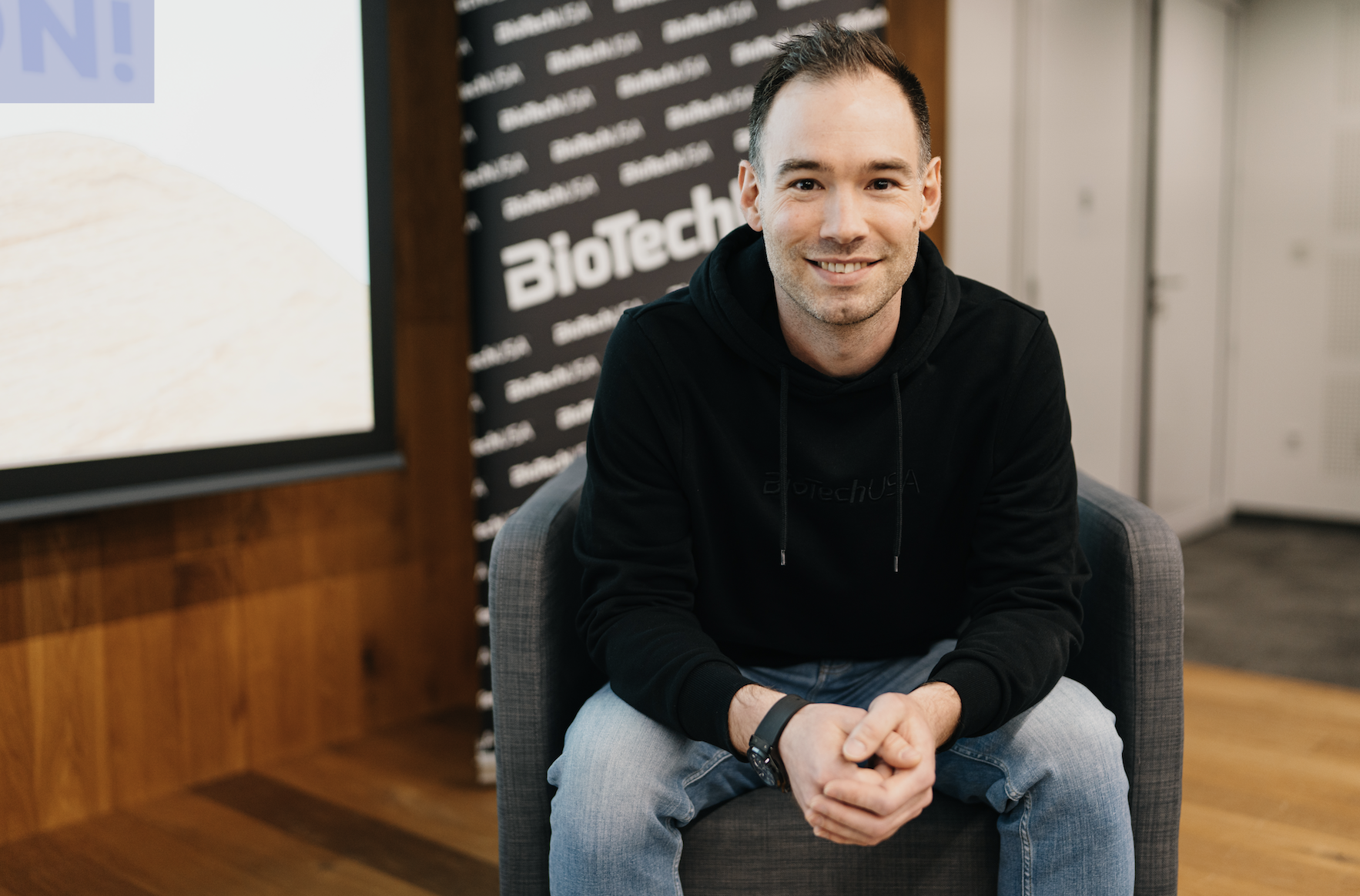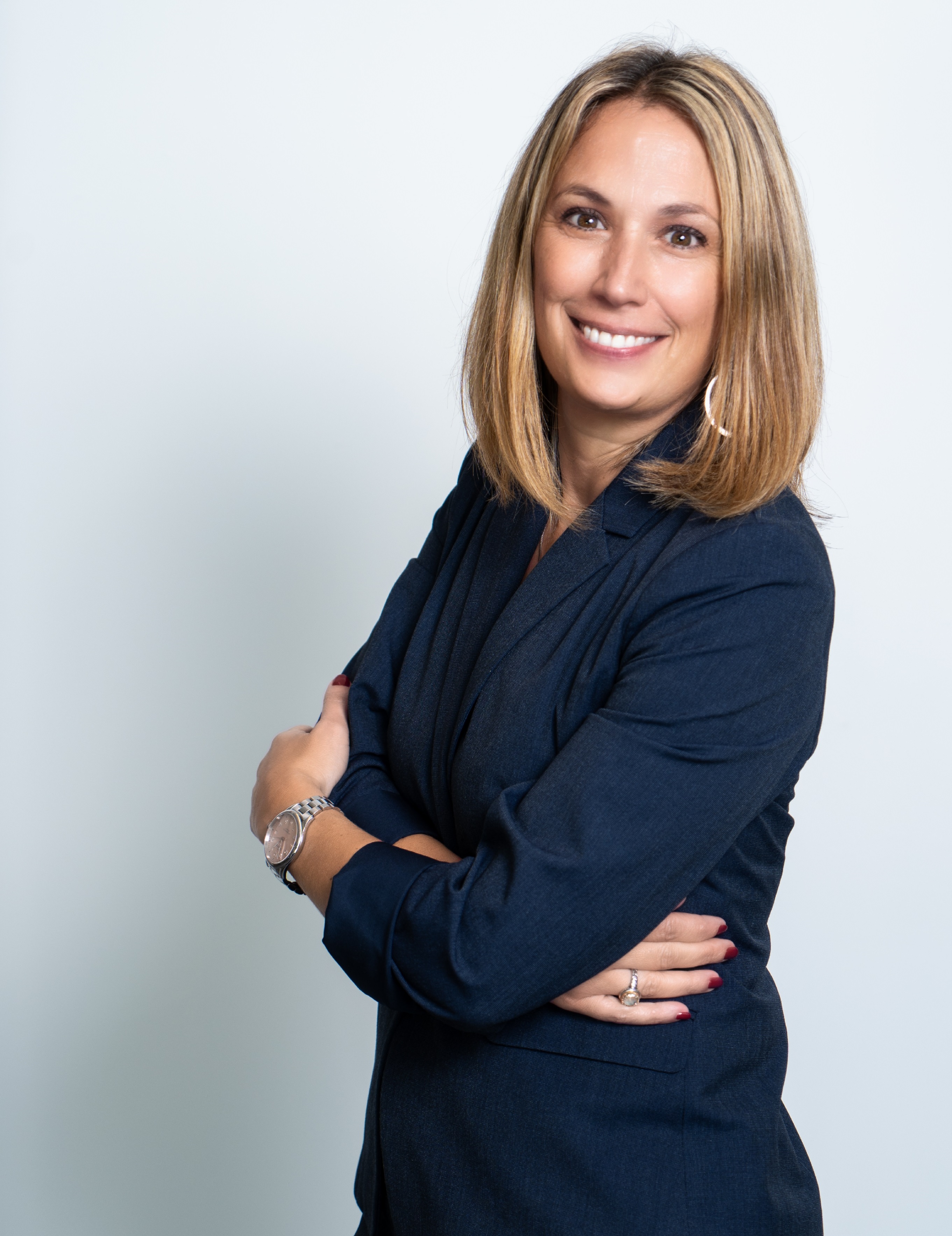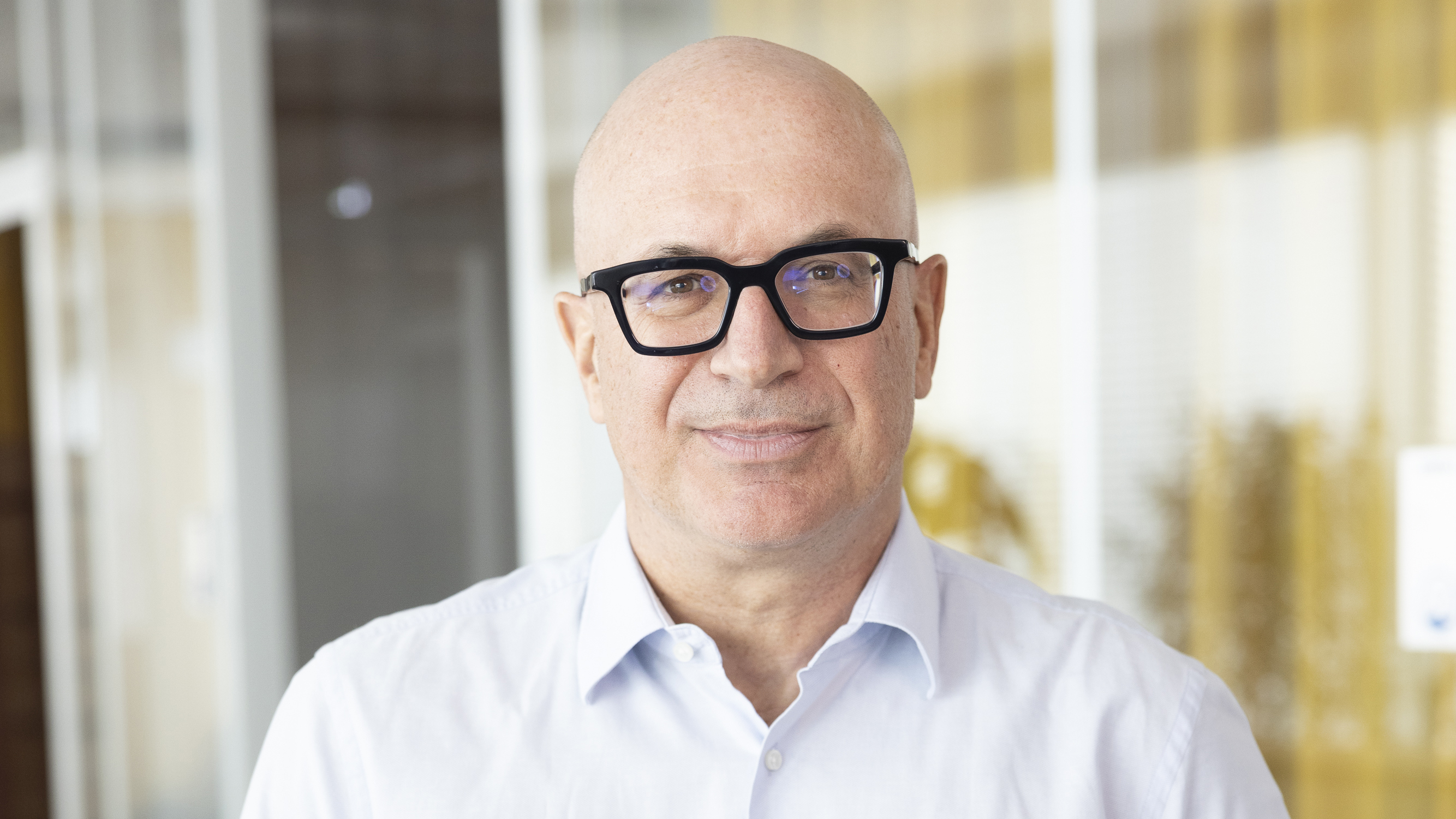Thermo Fisher Looking to Expand GBSC Despite Hiring Challenges
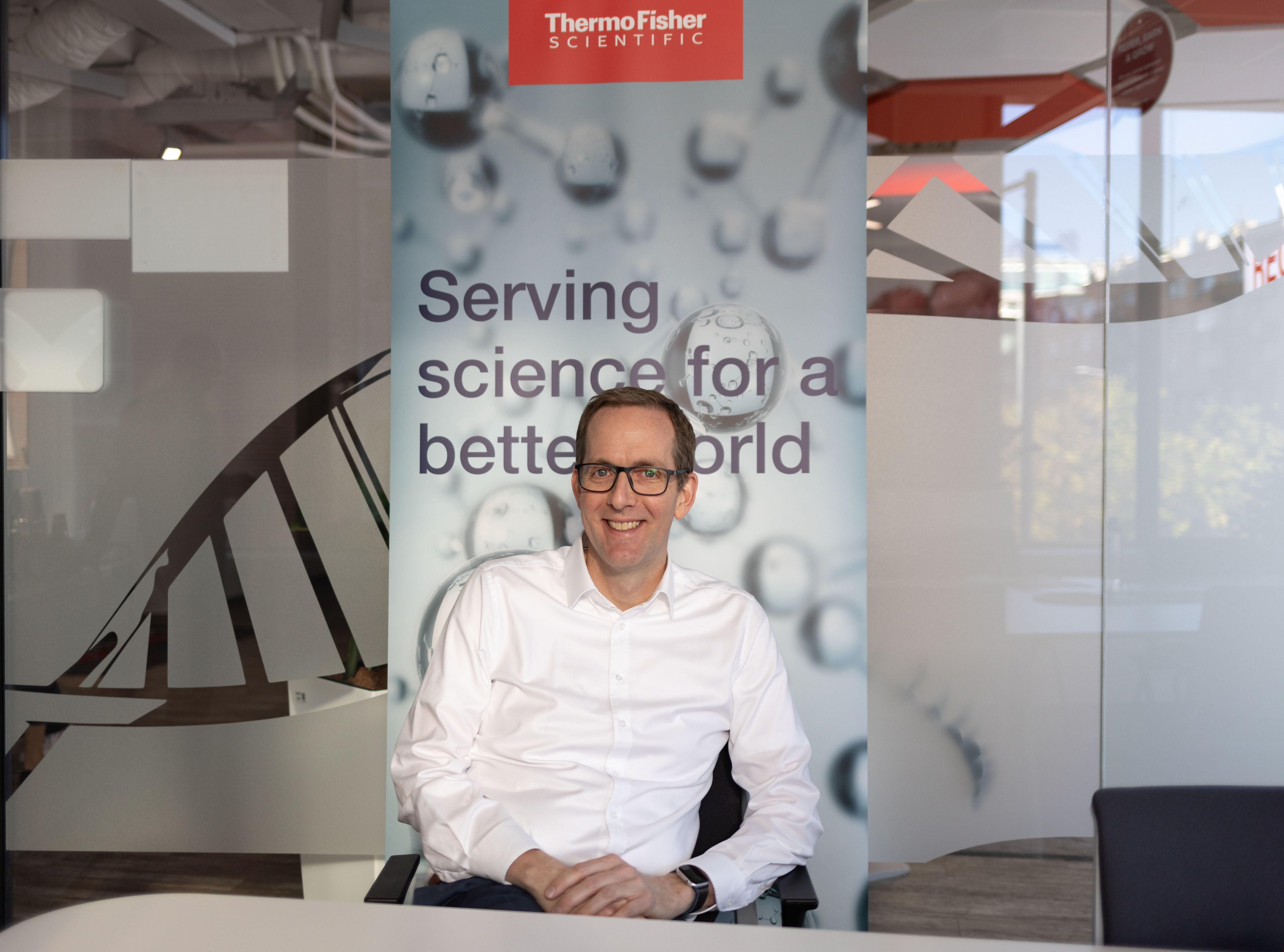
Konrad Bauer, senior vice president of global business services, Thermo Fisher Scientific.
Photo by Lázár Todoroff.
To enable customers to make the world healthier, cleaner and safer is the mission of Thermo Fisher Scientific, which opened its global business services center in Budapest five years ago this fall. The Budapest Business Journal spoke with Konrad Bauer, senior vice president of global business services, about how the company performed during this period and local operational challenges.
BBJ: Two years ago, the goal of Thermo Fisher’s shared services model was to be the transformative backbone of the company, and the Budapest operations would play a critical regional role in that. What has happened since?
Konrad Bauer: In the past two years, we have further expanded our footprint in Budapest from 500 to 800 colleagues and established a strong, diverse culture. From a business perspective, we extended our scope and created better end-to-end processes, which I think is a unique offering. In that sense, you see business services, globally and here in Budapest, move from pure execution to real value-added business transformation.
The second piece is that shared services help manage some of our challenges. We have built a procurement segment, which helped with supply chain shortages, and we are using the project management functionality to manage topics such as the current ESG regulations in the EU. Building on our success stories from the past five years, we are looking at a future of further growth, expanding the Budapest team and the global shared services organization.
BBJ: Hungary has struggled for several years with a labor shortage, especially among skilled labor. How is your company coping with that?
KB: I think we see that, especially when hiring people for multi-language roles.
BBJ: Do you find them?
KB: We are still finding the talent we need, but it’s getting harder. I see it in three ways. First, we as a company must ensure we have the right culture to attract talent. We have created an inclusive workplace culture, creating an environment where differences are genuinely valued. We’re also offering an environment where you can do more than just transactional back-office work because you contribute to a global mission where our colleagues make a difference in enabling our customers to make the world healthier, cleaner and safer.
Second, we will also require more support for native language speakers to come to Hungary and work here; currently, our team represents 37 nationalities. Finally, it’s investing in your people. We firmly believe that education and talent development cultivate higher added-value jobs. You need to invest in training your people. Since we opened the Budapest center, we had more than 8,000 training sessions to help colleagues unlock their full potential.
BBJ: We seem to have forgotten COVID-19 and the disaster that it brought. Do you think that Europe is better prepared now? Is it taking measures to cope better with the next pandemic?
KB: During COVID, we saw unprecedented speed in developing tests, treatments and vaccines needed to keep the world safe. It also showed the power of collaboration between science, industry and governments. The pandemic brought into focus the need for a more ambitious and sustained approach to preparedness. Governments must commit to long-term investments in public health, the resilience of healthcare systems and the ability to mobilize the right infrastructure.
I think there’s one preparedness level that is true for all governments, and that is the sense we actually lived through it. On the positive side, I think there’s a mindset people have understood that decision-making and certain actions must be taken much faster and that we have to live with the uncertainty because you can’t have it all figured out. And I think where we still have challenges, everybody will anchor back to COVID.
But what will you do when the next pandemic is not an airborne virus but a bacteria that is water-submitted? We had all these business continuity plans, and while many of them had pandemic reactions, none had specific details about what we needed to do for what happened during COVID-19. I think that’s why pandemic response preparedness is tricky. I think what we need to do as a society is to train our agility to act.
BBJ: Your company published an 85-page CSR report in 2022. What are the main focal points?
KB: The report showcases our commitment to sustainability and social responsibility and reflects our remarkable progress over the past year. Our current focus is carbon reduction, and we are expanding to waste and water. We have managed to continue to reduce our greenhouse gas emissions, and in 2022, we increased our goal by committing to a 50% reduction by 2030, and more than 150 of our sites are now fully powered by renewable energy. We are also redesigning water management in our manufacturing sites, especially in areas where water is scarce.
As for social responsibility, we focus on making the workplace an inclusive space. And how do we make sure people feel that they “belong to the company” and feel safe in the environment? We also remain dedicated to supporting our local communities. In Budapest alone, we have dedicated over 500 volunteer hours in the first half of 2023 to helping homeless shelters, cleaning our neighborhood and creating a new sensory playground for the Autism Foundation, maximizing our global impact through local engagement.
About Thermo Fisher
Thermo Fisher Scientific Inc. describes itself as the world leader in serving science, with an annual revenue exceeding USD 44 billion and a staff of approximately 125,000 globally. The multi-functional Budapest GBS Center, opened in 2018, is an integral part of Thermo Fisher’s global business services strategy. The site is designed to serve customers in the EMEA region in different workstreams, such as customer care, finance, procurement, service operations, life sciences technical support and an IT Center of Excellence.
AI in Shared Services
Thermo Fisher has been developing artificial intelligence and AI/machine learning technology for products and services for its customers for years. It recently launched an internal generative AI platform, which has the flexibility to adapt to multiple large language models (LLMs) in the future. “In shared services, we see many opportunities to use Gen AI to reduce repetitive work, boost productivity and augment our capabilities so that we can further scale our operations and improve service levels,” highlights Konrad Bauer
This article was first published in the Budapest Business Journal print issue of November 17, 2023.
SUPPORT THE BUDAPEST BUSINESS JOURNAL
Producing journalism that is worthy of the name is a costly business. For 27 years, the publishers, editors and reporters of the Budapest Business Journal have striven to bring you business news that works, information that you can trust, that is factual, accurate and presented without fear or favor.
Newspaper organizations across the globe have struggled to find a business model that allows them to continue to excel, without compromising their ability to perform. Most recently, some have experimented with the idea of involving their most important stakeholders, their readers.
We would like to offer that same opportunity to our readers. We would like to invite you to help us deliver the quality business journalism you require. Hit our Support the BBJ button and you can choose the how much and how often you send us your contributions.


